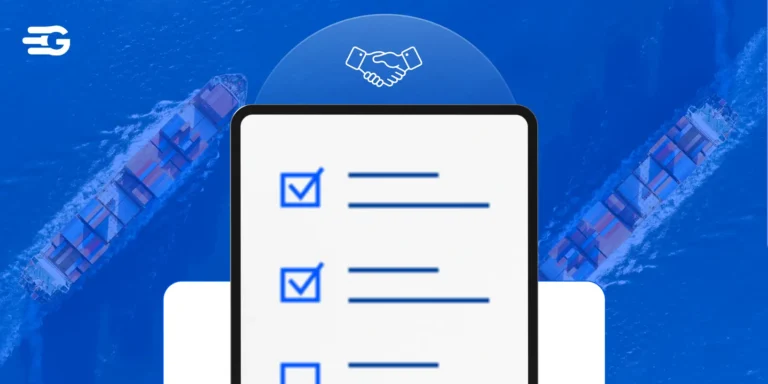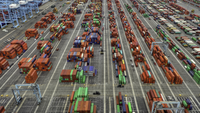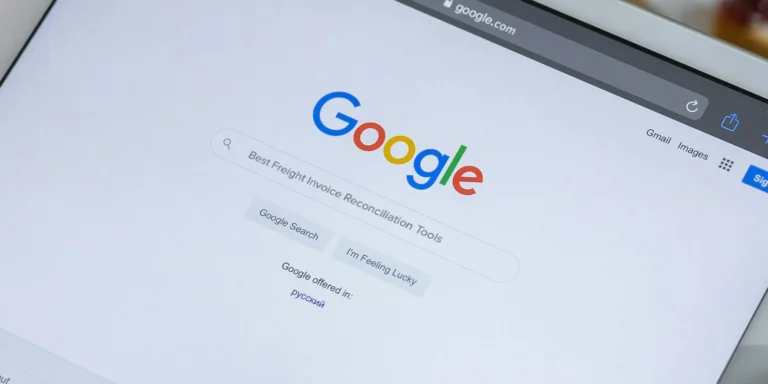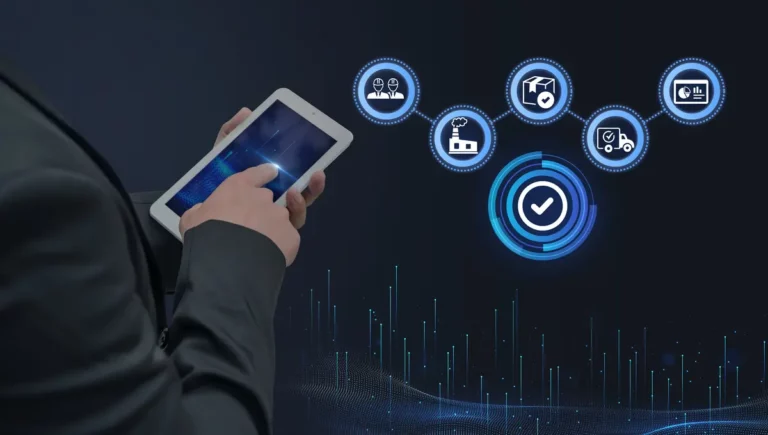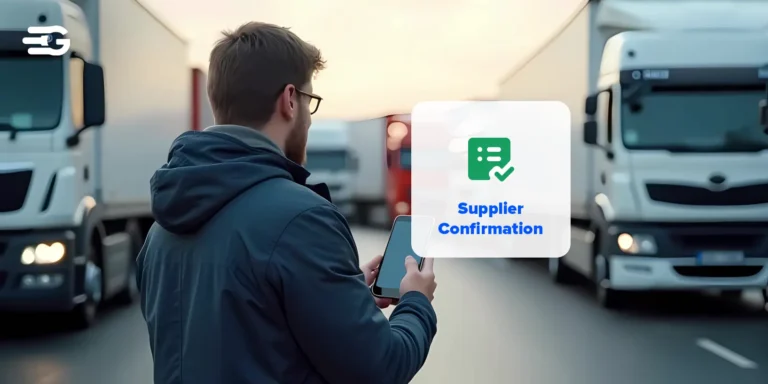Top 10 Supply Chain Traceability Software Solutions in 2025
Supply chains are getting more complicated, and companies can’t afford to lose track of their products anymore. Whether it’s new regulations, customer demands for transparency, or just wanting to avoid expensive recalls, businesses need software that shows them exactly where everything is and where it came from.
The good news is that tracking technology has gotten much better in the past few years. Instead of relying on spreadsheets and phone calls, companies can now use supply chain traceability softwares that automatically follows products from raw materials all the way to customers.
Below, we will list the best options we found. But before anything, below’s a methodology we used to evaluate these.
Methodology
We looked at user reviews on G2, Capterra, and TrustRadius to see what people actually think about these platforms. We also checked out industry forums where supply chain professionals discuss their experiences with different traceability systems.
Our evaluation covered the basics: how well each platform tracks products, whether it integrates easily with existing systems, and how much it costs to implement and maintain. The ranking prioritizes platforms that solve real problems over those that just have long feature lists.
Now that you know how these platforms are evaluated, let’s start right away.
1. GoComet
Smart shipping software that saves money
GoComet stands out because it actually helps companies cut shipping costs while keeping track of everything. Instead of just telling you where things are, it predicts problems before they happen and helps avoid expensive mistakes. This supply chain traceability software combines logistics management with advanced analytics to deliver measurable results.
The platform works particularly well for businesses that ship products globally and need to coordinate multiple transportation modes while maintaining visibility throughout the journey.
GoComet – Key Features
- Predicts delays and issues: Uses data from past shipments to warn you about potential problems, so you can fix things before they blow up
- Handles invoices automatically: Catches billing errors and processes paperwork without human intervention, which saves both time and money
- Tracks everything in one place: Whether your stuff is on a ship, truck, plane, or train, you see it all on one screen
2. TrusTrace
Built for fashion and textile companies
TrusTrace works particularly well for clothing and fabric companies that need to prove their products weren’t made with child labor or in environmentally harmful ways.
As supply chain traceability software goes, TrusTrace excels in industries where ethical sourcing and environmental impact matter most. The platform was designed specifically for the complexities of textile manufacturing, where materials often pass through dozens of facilities across multiple countries.
TrusTrace – Key Features
- Maps your entire supplier network: Shows you who your suppliers buy from, and who they buy from, going several levels deep
- Creates compliance reports automatically: Generates the paperwork you need for regulators without manual work
- Measures environmental impact: Tells you exactly how much pollution and waste your supply chain creates
3. IBM Sterling Transparent Supply
Heavy-duty blockchain solution for big companies
IBM’s system uses blockchain technology to create records that can’t be changed or faked. This works well for companies that need absolute proof of where things came from, especially in regulated industries. This supply chain traceability software leverages IBM’s enterprise technology expertise to deliver industrial-strength solutions.
The blockchain foundation means that once information enters the system, it becomes part of a permanent, verifiable record that satisfies even the most demanding audit requirements.
IBM Sterling Transparent Supply – Key Features
- Creates unchangeable records: Once information goes in, nobody can alter it later, which prevents fraud and helps with audits
- Controls who sees what: Lets you share some information with partners while keeping sensitive data private
- Updates everything instantly: When something changes anywhere in the network, everyone sees the update immediately
4. Infor Nexus NexTrace
Focuses on meeting regulatory requirements
Infor built this specifically to help companies deal with constantly changing regulations. It’s particularly useful when you’re selling in multiple countries with different rules. Among supply chain traceability software options, this one stands out for its regulatory focus.
The system understands that regulations aren’t static, and it evolves alongside changing legal requirements without requiring manual updates to tracking processes.
Infor Nexus NexTrace – Key Features
- Adapts to new regulations automatically: Updates tracking requirements when laws change, so you don’t have to rebuild everything
- Manages certificates and paperwork: Keeps track of all the permits, certifications, and documents you need for compliance
- Shows risks on maps: Displays potential problems geographically, so you can see which regions or suppliers might cause issues
5. Oracle Supply Chain Management Cloud
Does traceability plus everything else
Oracle’s system combines product tracking with planning and forecasting tools. If you want one system that handles multiple supply chain functions, this makes sense.
This supply chain traceability software integrates with Oracle’s broader business applications, making it attractive for companies already using Oracle systems. Rather than treating traceability as a separate function, Oracle embeds it into comprehensive supply chain management.
Oracle Supply Chain Management Cloud – Key Features
- Connects planning with tracking: Links demand forecasting and inventory management with traceability data
- Finds patterns in your data: Uses machine learning to spot trends and suggest improvements
- Grows with your business: Can handle more volume and users as your company expands
6. Transparency-One
Specializes in supplier relationships
As supply chain traceability software designed around supplier management, Transparency-One excels at helping companies understand and control their extended supplier networks. It focuses specifically on managing suppliers and identifying risks in your supply base.
The platform recognizes that most supply chain problems start with suppliers, so it provides detailed tools for monitoring supplier performance, identifying potential issues, and maintaining strong working relationships across the entire supplier ecosystem.
Transparency-One – Key Features
- Monitors supplier performance: Tracks how well suppliers deliver on time, meet quality standards, and follow rules
- Identifies risks early: Watches for signs that suppliers might have problems and alerts you before issues occur
- Improves supplier communication: Provides tools for working directly with suppliers to solve problems
7. Inspectorio
Uses AI for quality control
Inspectorio applies artificial intelligence to quality management, making it good for companies where product defects can cause serious problems or recalls. This supply chain traceability software brings machine learning to traditional quality control processes.
The AI capabilities analyze patterns across production data to identify potential issues before they affect finished products, which is particularly valuable in industries where recalls are expensive and damage brand reputation.
Inspectorio – Key Features
- Spots quality problems early: Uses data analysis to identify potential quality issues before they affect customers
- Suggests process improvements: Analyzes operations and recommends ways to work more efficiently
- Manages complex supplier networks: Provides visibility into multi-level supplier relationships
8. Circularise
Built for sustainable business practices
Unlike traditional supply chain traceability software that focuses on one-way product flows, Circularise handles circular economy models where materials cycle through multiple uses. They designed their platform specifically for companies trying to operate more sustainably.
It can track products through their entire lifecycle, including recycling and reuse phases that most other systems can’t handle effectively.
Circularise – Key Features
- Tracks product lifecycles: Follows materials through multiple uses, recycling, and disposal
- Verifies sustainability claims: Provides proof that environmental and social claims are actually true
- Uses blockchain for authenticity: Creates tamper-proof records of certifications and environmental data
9. Wholechain
Customizable blockchain platform
Wholechain lets you build your own tracking system using blockchain technology. This works well if you have specific requirements that off-the-shelf solutions don’t meet. This supply chain traceability software provides flexibility for companies with unique tracking needs.
Rather than forcing businesses to adapt their processes to fit the software, Wholechain allows customization of tracking parameters, data collection methods, and reporting formats.
Wholechain – Key Features
- Build custom tracking systems: Create data collection forms and processes that match your exact needs
- Quick mobile access: Use QR codes so people can get product information instantly on their phones
- Coordinate with partners: Share information with suppliers and customers while controlling access levels
10. Zetes (ZetesOlympus)
Industry-specific solutions
This supply chain traceability software comes pre-configured for industry-specific needs, which saves implementation time and reduces the risk of missing important compliance requirements.
Companies in highly regulated sectors appreciate having a system that already understands their industry’s tracking requirements, certification processes, and regulatory reporting needs without requiring extensive customization.
Zetes (ZetesOlympus) – Key Features
- Pre-built for specific industries: Comes configured for pharmaceutical, food, or luxury goods requirements
- Real-time monitoring: Shows what’s happening right now throughout your supply chain
- Strong in Europe: Particularly good at handling European regulations and market requirements
Conclusion
Most companies realize they need better supply chain tracking, but many get stuck choosing between dozens of software options. The platforms we’ve covered here actually work in real business environments and can handle the messy realities of global supply chains.
Your choice comes down to what problems you’re trying to solve.
If you’re shipping internationally and want to cut costs while improving visibility, GoComet makes the most sense. See how GoComet’s AI-powered platform can reduce your shipping costs and improve supply chain visibility with a personalized demo
